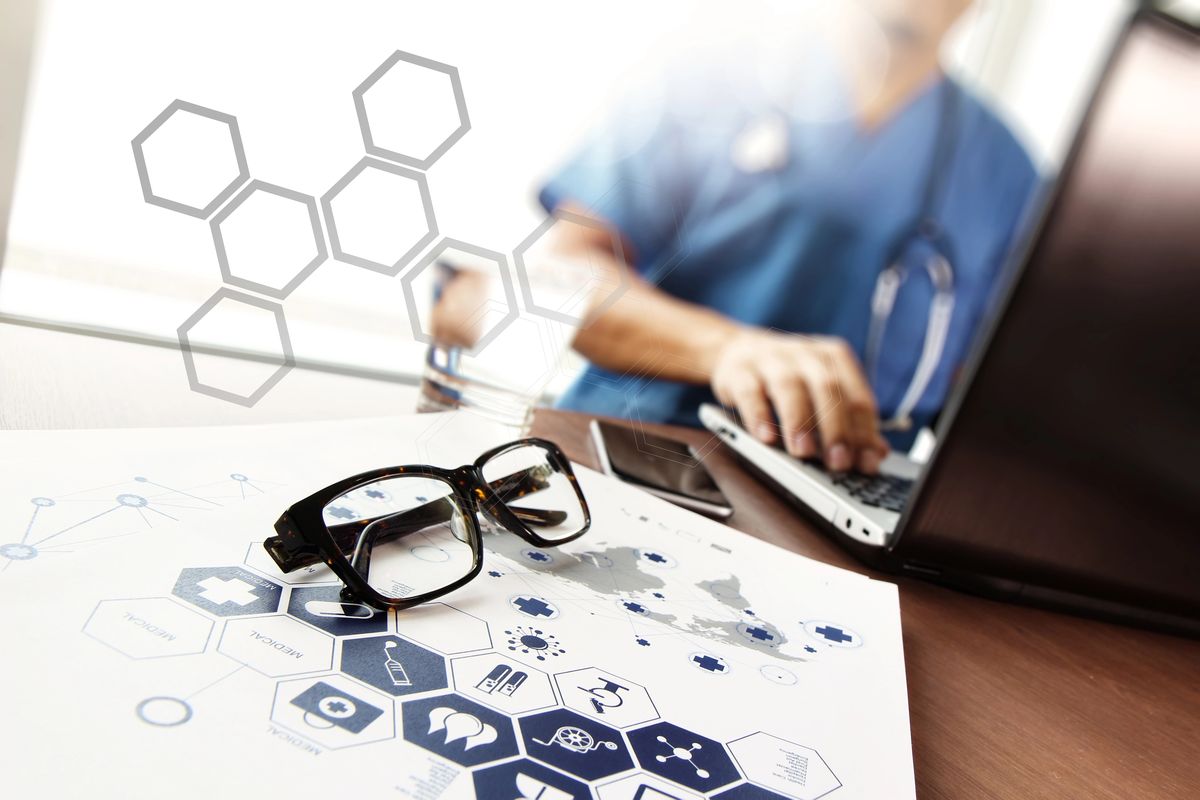Remote medical monitoring, also known as telemedicine or remote healthcare, is a rapidly growing field that uses digital technology to track patients' health in real time, regardless of their physical presence in a medical facility. This innovative form of healthcare is a key part of the humanisation of medicine, enabling a personalised approach and the provision of continuous, personalised care to patients who need constant monitoring.
Advanced technologies, such as wearable devices, mobile apps, and telemetry systems, enable the collection, analysis and transmission of patient health data in real time to the doctor or care team. This allows patients to remain in the comfort of their own home, while still receiving expert care.
Remote medical monitoring contributes to a significant improvement in the quality of care, enabling early detection of potential health problems and rapid medical intervention. The availability of continuous health data allows treatment plans and interventions to be better tailored, which is in line with the idea of humanising medicine, which puts the patient's welfare first.
Remote monitoring not only increases patient comfort and satisfaction, but also contributes to optimising healthcare costs by reducing unnecessary visits to medical facilities and hospitalisations. In addition, it enables patients with chronic conditions, such as diabetes or hypertension, to better control their own health.
Humanising medicine in the digital age
In the digital age, where technology is increasingly boldly entering the healthcare sphere, the question of how digital tools and solutions can contribute to the humanisation of medicine becomes crucial. The evolution of healthcare towards more personalised, empathy-based treatment models is not only possible, but essential to meet the expectations and needs of today's patients.
Digital tools such as smart health apps, patient data management platforms or systems that support remote consultations make it possible to collect, analyse and use a wide range of data on a patient's health status. This makes it possible to tailor diagnostic, therapeutic and care processes to the individual needs of each patient. Personalisation of care translates into more effective treatment, improved quality of life for patients and increased patient trust and satisfaction with the healthcare services they receive.
Empathy in a digital world
The challenge in implementing technology into medical practice is to maintain empathy and the human dimension of care. Digital tools can support empathy by enabling better communication between patient and doctor, even at a distance. Videoconsultation, online support or digital collaboration platforms allow building relationships, listening to the patient and understanding their needs in a way that would be difficult to achieve without the support of modern technology.
Remote care, one of the pillars of digital medicine, offers unique opportunities for the humanisation of medicine. Access to healthcare for people living in remote regions, people with disabilities or seniors who may find it difficult to visit medical facilities regularly is an example of how technology can contribute to equity in access to healthcare services. In addition, real-time health monitoring and remote interventions can significantly improve the quality of life for patients with chronic diseases.
Implementing digital solutions in healthcare also involves addressing ethical issues such as data privacy, information security or equal access to technology. Humanising medicine in the digital age therefore requires not only investment in new technologies, but also the development of ethical and legal awareness among both medical professionals and patients.
Benefits of remote medical monitoring
In the context of the humanisation of medicine, remote monitoring has numerous benefits for both patients and the healthcare system. Not only does this technology enable a personalised approach to each patient, but it also promotes empathy and increases the efficiency of treatment. An analysis of the advantages of remote monitoring highlights its importance in creating more accessible, equitable and patient-centred healthcare.
One of the biggest advantages of remote monitoring is the possibility to provide care to patients who, for various reasons, cannot regularly visit medical facilities. People living in remote or sparsely populated regions, patients with limited mobility, or the elderly gain equal access to health services. In this way, remote monitoring contributes to reducing inequalities in access to medical care.
Remote monitoring allows the patient's health status to be tracked continuously, enabling rapid response to any changes and real-time adjustments to the treatment plan. This not only makes care more personalised, but also more effective. Patients receive treatment that is precisely tailored to their current needs, increasing the chances of rapid improvement in their condition.
Remote monitoring has the potential to significantly relieve the burden on healthcare systems by reducing unnecessary medical visits and hospitalisations. By detecting potential health problems early and being able to intervene remotely, the demand on hospital resources is reduced, resulting in better use of available resources and increased availability of care for more patients.
Patients using remote monitoring often experience an improved quality of life. The ability to remain in a comfortable and familiar home environment, while maintaining continuous contact with the medical team, reduces the stress and anxiety associated with treatment. In addition, participating in the process of monitoring and managing their own health increases patient engagement and awareness of their condition.
Remote monitoring also offers support to patients' families and carers, giving them access to up-to-date information about their loved one's health. As a result, they can better understand the patient's needs, collaborate more effectively with the medical team and feel greater security and peace of mind knowing that their loved one's health is constantly being monitored.
